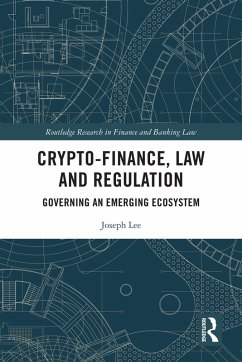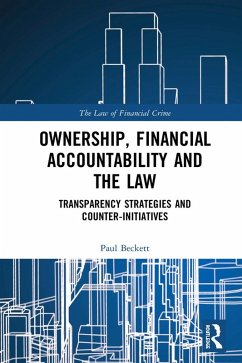
Routledge Handbook of Financial Technology and Law (eBook, ePUB)

PAYBACK Punkte
22 °P sammeln!
Financial technology is rapidly changing and shaping financial services and markets. These changes are considered making the future of finance a digital one.This Handbook analyses developments in the financial services, products and markets that are being reshaped by technologically driven changes with a view to their policy, regulatory, supervisory and other legal implications. The Handbook aims to illustrate the crucial role the law has to play in tackling the revolutionary developments in the financial sector by offering a framework of legally enforceable principles and values in which such...
Financial technology is rapidly changing and shaping financial services and markets. These changes are considered making the future of finance a digital one.This Handbook analyses developments in the financial services, products and markets that are being reshaped by technologically driven changes with a view to their policy, regulatory, supervisory and other legal implications. The Handbook aims to illustrate the crucial role the law has to play in tackling the revolutionary developments in the financial sector by offering a framework of legally enforceable principles and values in which such innovations might take place without threatening the acquis of financial markets law and more generally the rule of law and basic human rights.
With contributions from international leading experts, topics will include:
This Handbook will be of great relevance for practitioners and students alike, and a first reference point for academics researching in the fields of banking and financial markets law.
With contributions from international leading experts, topics will include:
- Policy, High-level Principles, Trends and Perspectives
- Fintech and Lending
- Fintech and Payment Services
- Fintech, Investment and Insurance Services
- Fintech, Financial Inclusion and Sustainable Finance
- Cryptocurrencies and Cryptoassets
- Markets and Trading
- Regtech and Suptech
This Handbook will be of great relevance for practitioners and students alike, and a first reference point for academics researching in the fields of banking and financial markets law.
Dieser Download kann aus rechtlichen Gründen nur mit Rechnungsadresse in A, B, BG, CY, CZ, D, DK, EW, E, FIN, F, GR, HR, H, IRL, I, LT, L, LR, M, NL, PL, P, R, S, SLO, SK ausgeliefert werden.













